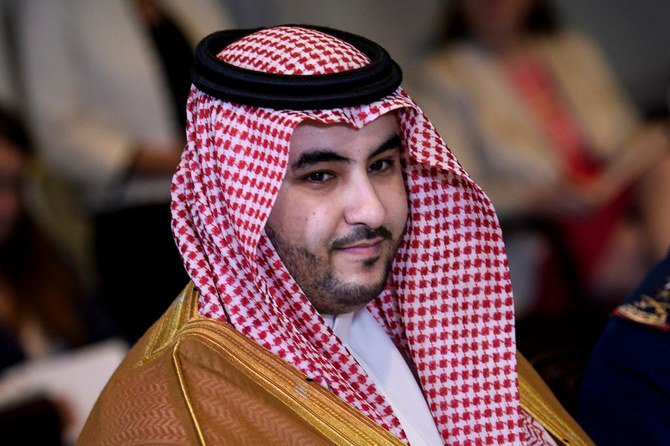Alwaght- Saudi vice defense minister said on Friday the kingdom views a truce announced by Yemen’s Ansarullah movement positively, suggesting the proposal was something Riyadh had always been seeking.
“The truce announced in Yemen is perceived positively by the Kingdom, as this is what it has always sought, and hopes it will be implemented effectively,” Prince Khalid bin Salman wrote on Twitter.
Last month, the Ansarullah movement offered to halt its retaliatory attacks against Saudi Arabia if the West-backed kingdom ends its bombing campaign against Yemen.
The offer and the kingdom's belated welcome follow a recent major ground operation by Yemenis and a brazen drone attack on Saudi Arabia’s heart of oil industry.
US government-funded Voice of America (VOA) said on Friday Saudi Arabia is shell-shocked from the devastating attack on Aramco oil facilities last month.
In an analysis, the agency said the kingdom has realized that it is facing defeat in Yemen and is consequently seeking to terminate the war.
After four years of facing Saudi Arabia and the United Arab Emirates, the "once rag-tag" Ansarullah and the reistance movement's Yemeni allies have managed to hold off "the military might of Yemen's rich Persian Gulf neighbors," VOA said.
Launching its war on Yemen in March 2015, Riyadh had sought to install a pro-Saudi regime in power and crush the popular Ansarullah movement.
The article explained, however, that Ansarullah, which has proven to be one "of the most effective" fighting groups in the region, has forced Riyadh to realize the failure of its military campaign.
"From the Saudi point of view there is a recognition that after four-and-a-half years, they can't bomb the Houthi into submission, and that perhaps there has to be some kind of accommodation," said Persian Gulf analyst Neil Partrick speaking to the VOA.
Consequently, recent developments have not only faded the chance of victory in the eyes of Riyadh, but, according to observers, the kingdom is increasingly seeing the war in Yemen as a threat "greater than before," VOA said.
The September 14 Aramco attack plunged Saudis into "shock", said Partrick who was present in the Aramco oil facilities in the "immediate aftermath" of the operation.
He said Saudi media pleaded for the West's "strong action", even military intervention, but Riyadh's Western allies refrained from any direct action.
The US administration, instead, is trying to coax Saudi Arabia into negotiations with Houthi leaders, The Wall Street Journal reported.
US Assistant Secretary of State for Near Eastern Affairs David Schenker, who visited the region recently, said Washington is in talks with Ansarullah in a bid to end the war, the first such contact in more than four years.
Shortly after the Aramco attack, Yemeni forces scored a major field victory against Saudi-led troops in the country’s northern Najran region last week.
According to a military spokesman, Yemeni forces killed some 200 Saudi-backed mercenaries and took hundreds of others captive in the offensive.
The UAE's withdrawal of troops from Yemen has also compounded Saudi Arabia's woes.
An unnamed diplomat, quoted by Reuters, said the war would effectively end if Riyadh agreed to a halt in airstrikes as the Saudis lack "extensive ground capabilities".
The news agency cited what it called unnamed sources as saying that Saudi airstrikes in Yemen have "decreased significantly" recently.
A senior Houthi-affiliated military source told Reuters Riyadh had also “opened communication” with the head of the Yemen's Supreme Political Council, Mahdi al-Mashat, via a third party.
No deal had been reached, however, the source added.
The Houthi movement has warned that it will proceed with "more crippling" attacks against Saudi Arabia if Riyadh fails to address its peace offer.



























